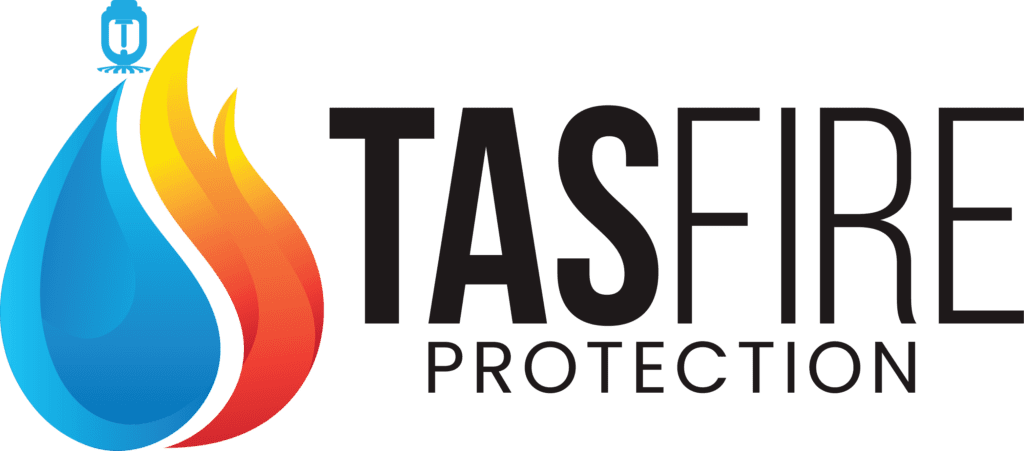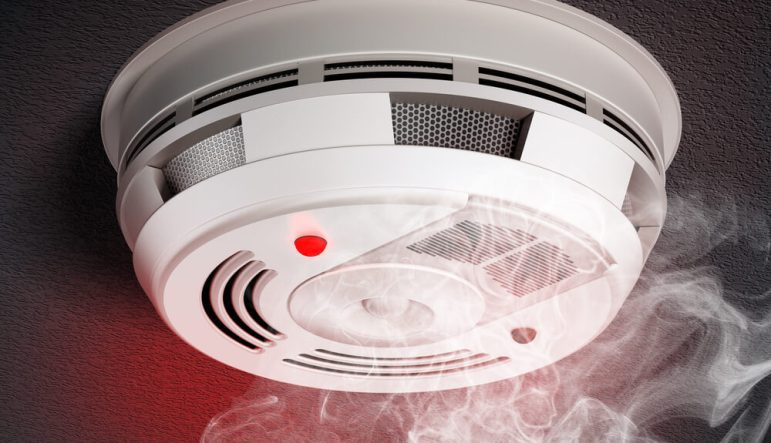Smoke Alarm Sounds: What They Mean and How to Respond?…

Protecting our homes and loved ones from the threat of fire is of utmost importance. In this fast-paced world, we rely on innovative tools to keep us safe, and smoke alarms are at the forefront of fire prevention. These ingenious devices are designed to detect smoke, serving as our vigilant guardians and providing an early warning system that can mean the difference between life and death. However, understanding the significance of different smoke alarm sounds and knowing how to respond effectively is vital for our safety. The following will explore the various smoke alarm sounds, explain their significance, and provide practical steps on how to respond. By being informed and prepared, we can maximize our fire safety measures and protect what matters most.
What Are Smoke Alarms?
Imagine having a watchful guardian that can detect smoke even before you can see or smell it. Smoke alarm systems are remarkable devices that are meticulously designed to sense the presence of smoke in the air. Whether you’re at home or in a commercial building, smoke alarms act as your invisible fire protectors, tirelessly monitoring for potential fire hazards. Equipped with highly sensitive sensors, they can detect even the tiniest particles of smoke. The moment smoke is detected, the alarm blares, warning you of the impending danger.
Smoke Alarm Sounds
Have you ever wondered why smoke alarms make different sounds? Those sounds are not merely random noises; each one has a distinct purpose and message. In this journey through the realm of smoke alarm sounds, we’ll uncover their meanings and the secrets they hold.
Continuous Loud Alarm Sound
When your smoke alarm emits a continuous, loud alarm sound, it’s a clear indication that smoke has been detected within its range. This sound demands immediate action. Follow your designated fire evacuation procedures swiftly. Simultaneously, contact emergency services to report the fire, providing them with all the necessary details for an effective response. Every second counts when it comes to fire safety.
Intermittent Chirping or Beeping Sound
If you hear a chirping or beeping sound emanating from your smoke alarm, it’s usually a signal of a low battery or a malfunction within the device. Don’t disregard this sound! Begin by replacing the battery of the smoke alarm with a fresh one. If the chirping or beeping persists, consult the manufacturer’s instructions for troubleshooting steps. Should the issue persist, it may be necessary to replace the smoke alarm to ensure reliable fire detection. Don’t underestimate the importance of a properly functioning smoke alarm.
False Alarms – Unmasking the Culprits
False alarms can disrupt our daily lives and leave us unsettled. Understanding the common causes of false alarms empowers us to prevent unnecessary panic. Let’s explore some typical causes and learn how to prevent them:
- Cooking-related smoke: Smoke generated while cooking can trigger the smoke alarm. To prevent this, ensure proper ventilation while cooking and consider relocating the smoke alarm away from the kitchen. By doing so, you can enjoy your culinary adventures without setting off false alarms.
- High humidity levels or steam from showers: Steam from showers or high humidity levels can activate smoke alarms. Installing smoke alarms away from bathrooms or areas with high humidity can prevent this issue. Improve ventilation and utilize exhaust fans to reduce the likelihood of false alarms caused by steam. Relax and enjoy your showers without unnecessary panic.
- Dust and insects: Dust accumulation or the presence of insects can interfere with smoke alarm sensors. To prevent this, make regular cleaning and maintenance a habit. Gently vacuum the exterior of the smoke alarm using a soft brush attachment to remove any dust. Inspect the alarm to ensure there are no insects or obstructions. By keeping your smoke alarms clean, you can minimize the risk of false alarms caused by dust or unwelcome critters.
Knowing When to Replace Your Smoke Alarms
Knowing when to replace your smoke alarms is crucial to maintaining their effectiveness in detecting and alerting you to potential fires. Consider the following factors:
- Age: Smoke alarms, like any electronic device, have a limited lifespan. Most models have a recommended lifespan of around 10 years. However, it’s essential to check the manufacturer’s guidelines for your specific smoke alarm model. If your smoke alarm is approaching or has exceeded its recommended lifespan, it’s time to replace it. Ageing alarms may have diminished sensitivity and may not provide reliable fire detection.
- Malfunctions: Consistent malfunctions in your smoke alarm are a clear indication that it’s time for a replacement. Despite troubleshooting efforts, if the alarm continues to malfunction, it’s a sign that it can no longer be relied upon to detect smoke and provide timely warnings. Don’t take chances with a faulty alarm that may fail when you need it most. Invest in a new smoke alarm to ensure your safety.
Keep Your Alarms Ready for Action: Regular Inspection
Regular fire inspection and maintenance are vital for the reliable functioning of smoke alarms. By following these simple steps, you can ensure your alarms are always ready to protect you:
- Monthly Checks: Set a reminder to inspect your smoke alarms at least once a month. This regularity allows for early detection of any potential issues.
- Power Source: Check whether your smoke alarm is battery-operated or hard-wired. Ensure the power source is properly connected and functional.
- Test the Alarm: Simulate a smoke detection event by pressing the designated test button. Listen for a loud and clear sound, indicating the alarm is working correctly.
- Audibility Verification: From different areas of your home, confirm that the sound emitted by the smoke alarm is easily audible. This ensures the warning can reach all occupants.
- Cleaning: Keep your smoke alarms clean by gently removing any dust or debris using a soft cloth or compressed air. A clean alarm is a reliable alarm.
Installing for Maximum Protection: Essential Guidelines
Proper fire installation is key to maximising the effectiveness of smoke alarms. Consider the following guidelines:
- Follow Instructions: Carefully read and follow the manufacturer’s instructions for installation. Each model may have specific requirements.
- Bedroom Coverage: Instal smoke alarms inside each bedroom and in the immediate vicinity outside sleeping areas to ensure early detection, especially when we’re most vulnerable.
- Multiple Levels: Place smoke alarms on every level of your home, including the basement and attic if applicable. Fires can start anywhere, and early detection is crucial.
- Mounting Height: Mount smoke alarms on the ceiling or high on the wall, as smoke rises and tends to accumulate near the ceiling.
TAS Fire Protection: Your Trusted Provider of Comprehensive Fire Protection Solutions
The importance of smoke alarms cannot be overstated. They stand as silent guardians, shielding us from potential fire hazards. By understanding the meanings behind different smoke alarm sounds, we empower ourselves to respond promptly and effectively. Regular inspection, proper installation, and the use of reliable fire protection services are essential to ensuring the safety of our homes and businesses. For reliable smoke alarms and comprehensive fire protection services, you can choose Tasfire for peace of mind and a safer future.
Frequently Asked Questions (FAQs)
- What are the different sounds of smoke alarms? The different sounds of smoke alarms include a continuous loud alarm sound, which indicates the detection of smoke, and intermittent chirping or beeping sound, which usually indicates a low battery or a device malfunction.
- What causes smoke alarms to sound without reason? Smoke alarms can sound without reason due to various factors such as cooking-related smoke, high humidity levels or steam from showers, and dust or insects interfering with the alarm’s sensors.
- How long do smoke alarms typically last before needing replacement? Smoke alarms typically last around 10 years before needing replacement. However, it’s important to check the manufacturer’s guidelines for your specific model to ensure a timely replacement.
- Is it necessary to have a smoke alarm in every room of the house? It is recommended to have a smoke alarm in every room of the house, especially inside each bedroom and in the immediate vicinity of sleeping areas. This ensures early detection and provides maximum protection.
- Can I install a smoke alarm myself, or should I hire a professional? While it is possible to install a smoke alarm yourself, it is advisable to hire a professional for proper installation. Professionals have the expertise to determine the ideal locations and ensure correct functioning, maximizing the effectiveness of the smoke alarm system.
Contact Us (905-870-7779) for a Free Consultation!
—

About TAS Fire Protection
TAS Fire Protection offers comprehensive and cutting-edge fire, security, and electrical services to clients with residential, commercial, industrial, or high-rise properties. Our team of highly skilled professionals has years of experience in installing, maintaining, and inspecting fire, security, and electrical systems and equipment.
> Learn More

